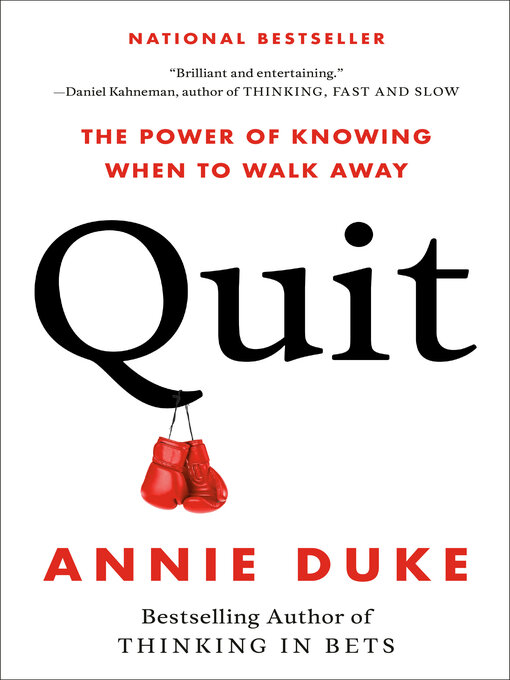Business leaders, with millions of dollars down the drain, struggle to abandon a new app or product that just isn’t working. Governments, caught in a hopeless conflict, believe that the next tactic will finally be the one that wins the war. And in our own lives, we persist in relationships or careers that no longer serve us. Why? According to Annie Duke, in the face of tough decisions, we’re terrible quitters. And that is significantly holding us back.
In Quit, Duke teaches you how to get good at quitting. Drawing on stories from elite athletes like Mount Everest climbers, founders of leading companies like Stewart Butterfield, the CEO of Slack, and top entertainers like Dave Chappelle, Duke explains why quitting is integral to success, as well as strategies for determining when to hold em, and when to fold em, that will save you time, energy, and money. You’ll learn:
Whether you’re facing a make-or-break business decision or life-altering personal choice, mastering the skill of quitting will help you make the best next move.


